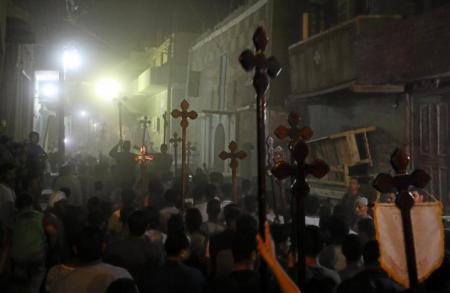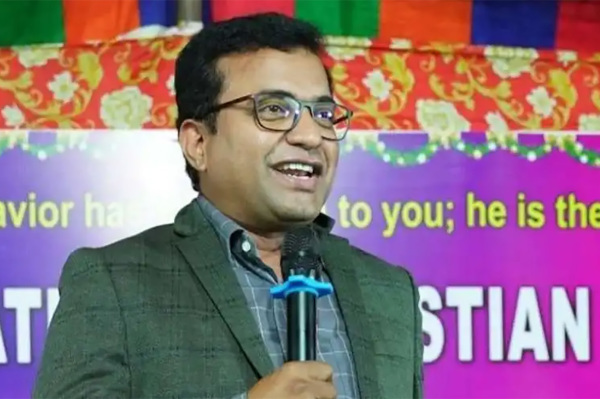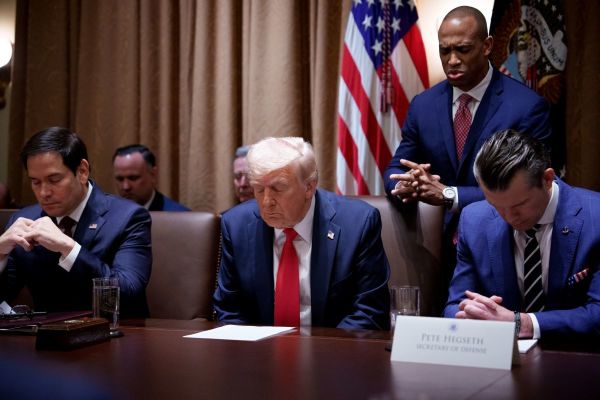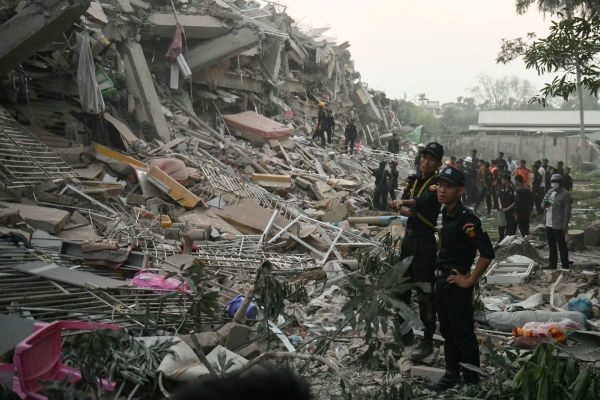7 Coptic Pilgrims Killed in Egypt Bus Attack; ISIS Claims Responsibility

The Islamic State has claimed responsibility for killing at least seven Coptic Christian pilgrims and injuring at least 19 others who were traveling to a desert monastery on Friday.
According to the Coptic Church, the attack occurred near the Monastery of Saint Samuel the Confessor in Minya, in which two buses and a passenger van were targeted.
ABC News reports that a spokesman for the church said one of the busses was transporting 28 family members traveling from the monastery after the baptism of a baby. According to the spokesman, six family members were injured in the attack.
Seven people who were onboard the microbus are reportedly dead. On the other bus coming from Minya, 13 others were injured.
The Islamic State terrorist organization claimed responsibility for the attack though it's Amaaq news agency on Friday but did not provide evidence of involvement, Reuters reports.
The attackers fled the scene and authorities are on pursuit.
"Praying for our departed, injured and surviving brethren, and those mourning loved ones," Bishop Coptic Archbishop of London Anba Angaelos, a popular international advocate for the Coptic Church, wrote on Twitter.
Egypt's President Abdel-Fattah el-Sisi said in a statement that he mourns "with great sorrow" those who were killed by "traitorous hands that seek to undermine the nation's fabric."
"We are determined to fight terrorism and catch the culprits," el-Sisi assured.
IS (also known as ISIS, ISIL or Daesh) claimed responsibility for a similar bus attack on Christians traveling to the same monastery in May 2017 in which just under 30 people were killed.
IS has called for attacks against Egypt's persecuted Christian community and has claimed responsibility for numerous Egyptian Christian deaths over the last couple of years, including the infamous beheading of 21 Copts on a Libyan beach in 2015.
The Interior Ministry said on Friday that the attackers used dirt roads to reach the traveling Christians since pilgrims are now the only ones allowed to use the main road to the monastery since the attack in May 2017.
According to The Associated Press, the Interior Ministry had said that only one bus was attacked while the Coptic Church said that there were three vehicles involved.
A source on the ground told Open Doors USA, a Christian persecution watchdog that operates in dozens of countries worldwide, that "the attack was on two, church-owned buses."
"The larger bus managed to escape the scene. The smaller bus did not," the organization reported in an email to supporters, adding that the death toll is expected to rise. "The attack occurred on the same road and approximately in the same location as the horrific bus attack on May 26, 2017, when ISIS militants killed at least 28 Christians traveling to the same monastery."
Open Doors notes that a child was among the injured.
The attack comes as Egypt ranks as the 17th-worst nation in the world when it comes to Christian persecution, according to Open Doors USA's 2018 World Watch List. Christians comprise about 10 percent of the Muslim-majority nation's population.
In addition to attacks and killings, IS has claimed responsibility for bombings that have killed and wounded dozens of worshipers at churches across Egypt.
In April 2017, IS claimed responsibility for the Palm Sunday bombings of churches in Tanta and Alexandria in which a combined total of 47 people were killed and 126 were injured.
Those attacks came just months after IS claimed responsibility for the bombing of the Botroseya Church in Cairo in December 2016. At least 29 were killed and 47 were injured in that attack.
In April 2018, at least three dozen terrorists accused of involvement in those bombings were given preliminary death sentences. In October, 17 of the accused militants were formally issued death sentences by a military court while 19 were given life sentences.
The attacks against Christians in Egypt comes as the Coptic community has largely supported el-Sisi, who led the 2013 Egyptian coup d'état to remove President Mohamed Morsi in 2013.
Not only did the Sisi government launch a large-scale military campaign against IS' outfit in Sinai, Sisi has also called on top Muslim clerics to help condemn violent Islamic ideology and help bring about a peaceful revolution in Islam.






















